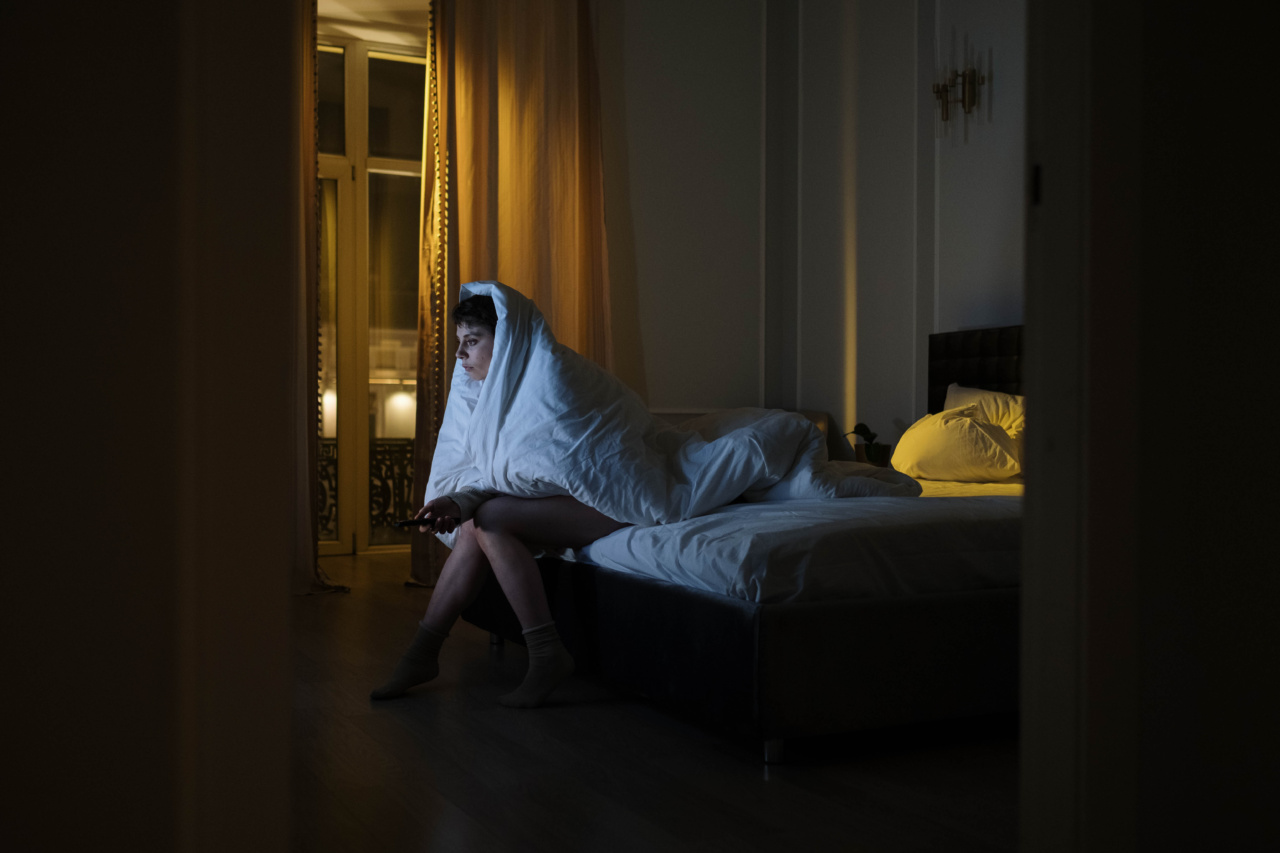Insomnia is a common sleep disorder that affects millions of people around the world. It can cause difficulty falling asleep, staying asleep, or both. As a result, individuals suffering from insomnia often wake up feeling tired, groggy, and unrefreshed.
The lack of quality sleep can lead to exhaustion, impaired cognitive function, and a decrease in overall productivity. However, there are several strategies you can implement to combat insomnia and avoid feeling exhausted the next day. In this article, we will discuss four helpful tips to combat insomnia and ensure a well-rested day ahead.
1. Establish a Consistent Sleep Schedule
One of the most effective ways to combat insomnia is to establish a consistent sleep schedule. This means going to bed and waking up at the same time every day, even on weekends.
By following a regular sleep routine, you can help regulate your body’s internal clock, also known as the circadian rhythm. This internal clock plays a crucial role in regulating the sleep-wake cycle, and maintaining a consistent schedule can help align your body with its natural sleep patterns.
Additionally, it is important to create a calming bedtime routine to signal to your body that it is time to wind down and prepare for sleep.
This may include activities such as reading a book, taking a warm bath, or practicing relaxation techniques such as meditation or deep breathing exercises.
2. Create a Sleep-Friendly Environment
Your sleep environment plays a significant role in your ability to fall asleep and stay asleep. Creating a sleep-friendly environment can greatly improve your chances of getting a good night’s rest and avoiding exhaustion the next day.
Consider the following tips to optimize your sleep environment:.
a. Keep Your Bedroom Dark and Cool
Light exposure can interfere with the production of melatonin, a hormone that regulates sleep and wakefulness. To promote quality sleep, it is essential to keep your bedroom as dark as possible.
Invest in blackout curtains or wear an eye mask if necessary. Additionally, keeping your bedroom cool can help facilitate sleep as our body temperature naturally drops during sleep.
b. Minimize Noise and Distractions
Noise and distractions can disrupt your sleep and leave you feeling tired the next day. Consider using earplugs, a white noise machine, or a fan to drown out any unwanted sounds.
Remove electronic devices, such as televisions and smartphones, from your bedroom to minimize distractions and create a peaceful sleep environment.
c. Invest in a Comfortable Mattress and Pillow
A comfortable mattress and pillow are essential for a good night’s sleep. If your mattress is worn out or uncomfortable, it may be time to consider investing in a new one.
Similarly, using a pillow that supports your head and neck properly can greatly improve your sleep quality. Choose a mattress and pillow that suit your preferences and provide optimal comfort.
3. Practice Good Sleep Hygiene
Sleep hygiene refers to a set of habits and practices that promote healthy sleep. By incorporating good sleep hygiene into your daily routine, you can improve your sleep quality and avoid exhaustion the next day. Consider the following tips:.
a. Limit Caffeine and Stimulant Intake
Caffeine, found in coffee, tea, soda, and chocolate, is a stimulant that can interfere with your ability to fall asleep. It is advisable to limit your caffeine intake, especially in the afternoon and evening.
Opt for decaffeinated drinks or herbal teas before bedtime.
b. Avoid Heavy Meals and Excessive Fluid Intake Before Bed
Eating a heavy meal close to bedtime can cause discomfort and make it difficult to fall asleep. Similarly, excessive fluid intake before bed may result in frequent awakenings to use the bathroom.
It is recommended to have your last meal at least two to three hours before bedtime and limit fluid intake before sleep.
c. Limit Exposure to Screens Before Bed
The blue light emitted by electronic devices such as smartphones, tablets, and computers can interfere with your sleep by suppressing the production of melatonin.
Avoid using electronic screens at least one hour before bed or consider using blue light filters or special glasses that block blue light.
d. Create a Relaxing Bedtime Routine
A relaxing bedtime routine can help signal to your body that it is time to sleep. Engage in activities that promote relaxation and reduce stress, such as reading a book, practicing yoga or stretching, or listening to calming music.
4. Seek Professional Help if Needed
If you have tried implementing these tips and are still experiencing persistent insomnia and exhaustion, it may be beneficial to seek professional help.
A healthcare provider or sleep specialist can diagnose and treat any underlying sleep disorders or medical conditions contributing to your insomnia. They can also provide additional strategies and techniques tailored to your specific needs.
Remember, everyone’s sleep patterns and needs are unique, so it may take time and patience to find the strategies that work best for you.
By following these tips and prioritizing your sleep, you can minimize the effects of insomnia and wake up feeling refreshed, energized, and ready to tackle the day ahead.































